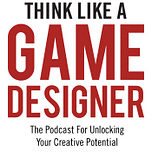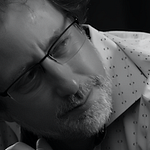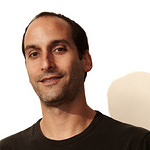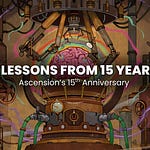About Mark Otero
In this episode, join us for an insightful discussion with Mark Otero, a true innovator in the gaming sphere. Starting with his humble beginnings founding KlickNation, an entity that caught Electronic Arts' attention, Mark's journey is one of risk, innovation, and striking success in game design. His unique perspective on community engagement, in-game economics, and narrative-driven experiences has reshaped how we think about interactive environments. Dive into a conversation exploring the challenges and triumphs that have defined his career, and glean invaluable wisdom from one of the industry's pioneering minds.
Ah-ha! Justin’s Episode Takeaways
Mark had many great takeaways, but the biggest takeaway for me was how our backgrounds inform our designs. We delve into Mark’s upbringing, exploring how experiences of scarcity and powerlessness fueled his design philosophy and passion for RPGs. Being a game designer is not only about crafting memorable experiences for players but also about channeling one's identity into the work. Mastering the art of intertwining these two aspects is what distinguishes good designers from legendary ones—those who create games that resonate with us for a lifetime.
How does your own unique background inform your designs?
Learn more about Mark’s projects here: visit Azra Games
Show Notes:
Dungeons & Dragons facilitates fantasy (00:05:00):
“When I discovered Dungeons and Dragons, suddenly there was this vacuum that I wanted to fill with all the things I couldn't do in my normal life.”
In this segment, Mark delves into his personal evolution, attributing significant character growth and leadership skills to his experiences with Dungeons & Dragons. He reflects on how the game, renowned for its rich storytelling and complex strategic demands, fostered his imaginative capabilities and decision-making skills. Within the realm of these fantasy worlds, Mark underscores his learned empathy and the ability to unite diverse individuals in common quests. These, he believes, parallel real-world scenarios, shaping him into a more resourceful and inclusive leader. For Mark, Dungeons & Dragons transcends mere entertainment; it's a developmental tool that molds one's character and worldview, emphasizing camaraderie, imagination, and strategic foresight.
Game Development Philosophy and the Importance of Fun (00:27:00):
"The philosophy of fun goes like this: What is your greatest desire?”
Otero touches on a fundamental principle in game development: the importance of prioritizing the player's experience of fun. He suggests that losing sight of this in favor of financial gain or technological advancements detracts from what makes games appealing to a broader audience. This philosophy is central to his approach to developing games and building communities around them.
Begging for Star Wars (00:40:00):
"I got on my knees and begged for the chance to pitch my vision for Star Wars. And it's because I was initially told no."
In this insightful segment, Mark shares his intriguing journey within the Star Wars franchise's universe, highlighting the delicate balance between commercial strategies and authentic fan engagement. He recounts his initial foray into this iconic realm, emphasizing how it honed his business acumen and creative instincts. Dealing with Star Wars wasn't just about leveraging a brand; it was about diving deep into its lore, understanding the heartbeat of its longstanding community, and contributing positively to its legendary narrative. Mark discusses navigating the expectations of a passionate fanbase while expanding on the franchise’s rich legacy. This experience, he reflects, was pivotal in understanding the intricate dance between fan service, narrative integrity, and commercial success.
The Missteps in Pre-selling Game Assets (1:20:00):
“I said to myself, they have never clearly made a game before because what they think they're building, and you and I both know this, is going to radically change in about eight months.”
Here, the discussion highlights a growing trend in the gaming industry: pre-selling in-game assets before the game is fully developed or released. Otero expresses concern about this strategy, suggesting it prioritizes financial speculation over the player's actual gaming experience, potentially harming community perception and trust in the long run.















